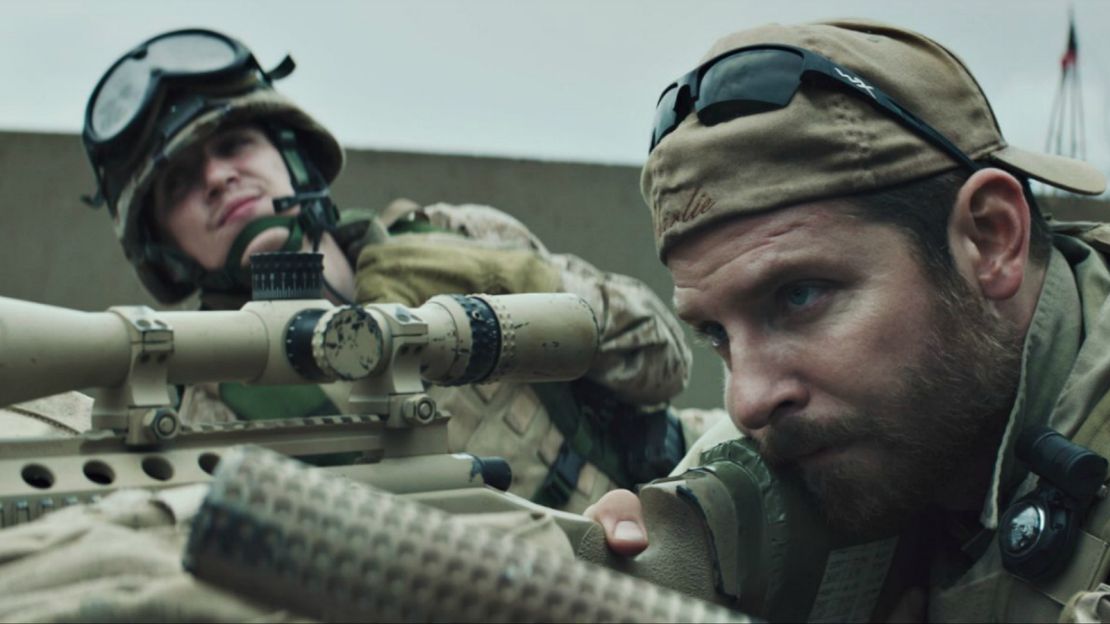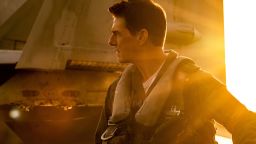Editor’s Note: Craig Michel is a former Army Special Forces officer who spent the later portion of his military career advising on special operations policy in the Pentagon. He is a member of the Writers Guild Foundation’s Veterans Writing Project. The views expressed here are his own. Read more opinion on CNN.
One thing I know for sure: America wants nothing more to do with messy ground wars. This reality was driven home for me as I sat in a dark movie theater watching “Top Gun: Maverick.”

I know a thing or two about these wars. As a Special Forces officer, I led Green Berets in combat in Afghanistan during a time when expertise in insurgency, counterinsurgency, guerilla warfare and counterterrorism were in high demand. After many years of languishing behind stealth fighters and expensive investments in technological dominance in the minds of defense planners, the response to the 9/11 attacks and the campaigns that followed seemed uniquely suited for America’s Special Operations Forces and we relished our new standing.
After years of playing second-fiddle, we were finally the belles of the ball and an undeniable form of validation was seeing our story told again and again on the silver screen. Through tales both harrowing and daring, Hollywood glorified us and those like us in “The Hurt Locker,” “Zero Dark Thirty,” “Lone Survivor” and “American Sniper.”
From “13 Hours” to “12 Strong” to “The Outpost,” we followed soldiers and special operators from street to village to mountain as they did dangerous work in treacherous environments. For 20 years the war was in dusty streets and sunbaked palm groves, with only nano-seconds separating calm from violence.
Ambiguity and drama came naturally as bodies piled up. As the wars and their casualties slipped into the background of American life, Hollywood’s portrayal became a key part of the nation’s connective tissue to its conflicts overseas.

This weekend, Hollywood’s elite will reveal its Oscar winners. The nearly 100 year old ritual of ceremony and recognition will soon crown its newest champions and provide history with some glimpse of what our society cared about in 2022.
“Top Gun: Maverick”—nominated in six categories, including best picture—is in a unique position on that score: it’s a film sequel that nostalgically evoked the original’s iconic Cold War milieu at a moment in history when the Ukraine conflict has galvanized Cold War 2.0, and it’s a blockbuster that heralded a post-pandemic return to a classic form of Hollywood star power.
Whether it wins Oscars or not, the film (and its success at the box office) was also a sharp harbinger of Americans’ wish to distance themselves psychologically and politically from a very specific kind of war.
The chaotic withdrawal of US forces from Afghanistan in August 2021 marked a brief spike in national interest but also reminded many Americans we were still there. So much of the nation had moved on, and so had Hollywood.
America yearned to get out of the dirt and dust, off the dangerous streets. Americans, worn down by years of unresolved military conflict and buffeted by a worldwide pandemic, wanted to be back in the clear blue skies where our dominance could not be questioned—and Hollywood knew just the hero to take us there.
After a 36-year hiatus (and numerous release delays), Tom Cruise’s Captain Pete “Maverick” Mitchell roared back into our lives. The timing was perfect and the metaphor was clear. America was hungry for what Maverick had to offer and she was ready to eat ravenously.
“Top Gun: Maverick” is notable for what it gives us and for what it notably does not. Gone are the rough and bearded men who trafficked in the dirty wars against terrorists, insurgents and the populations they swam in. Gone are the IEDs. Gone is the torture. Gone is the trauma.
In place of these things, we are given a clean-shaven crew of fit, diverse and beautiful people. They represent the best of America’s 21st century naval aviators and the best suited, so we’re told, to destroy a looming and existential threat to America.
For this mission, America’s decision makers don’t turn to highflying, radar eluding bombers. They don’t turn to an armed drone of any sort, and they certainly don’t turn to a pack of sneaky commandos. For a mission of this importance, Maverick and his disciples are the only answer.
I sat smiling in the theater as I watched all of this. Everyone was smiling, including Maverick. As he ripped across the screen on his Kawasaki motorcycle, wearing the same classic bomber jacket and sunglasses, flashing the same sly smile. What a thrill it was to see it all again.
With every inch of pavement that Maverick rockets over, he brings the audience back to a simpler time in America and a simpler time in our relationship with the world. It’s not just Maverick we missed, it’s the unambiguous hero whose cause and moral justification for fighting is beyond reproach and whose victory is assured.
Maverick returns American audiences to a war easy to understand, easy to support and easy to win. There’s no need to fight at night (despite the technological advantages it affords), because nothing these pilots do needs to be hidden from the light of day.
There’s no reason to put boots on the ground, because on the ground, things get messy. In fact, Maverick manages to eject, evade an enemy helicopter, link up with wingman Miles Teller’s Rooster (son of Anthony Edwards’s Goose from the first installment) and roar back into the skies, all in less than eight minutes.
Less than eight minutes is the most patience we have for boots on the ground, even on a landscape so beautiful that it begs for a TikTok. The ugliness of war has almost entirely disappeared from the narrative frame, and the enemy we fight (who only briefly appears in human form) is made as easy as possible to despise.
His face covered by a dark helmet, the country he fights for is ambiguous. Rooting for his demise is completely guilt-free. Whoever he is, wherever he’s from, he can and will be conquered from the air, cleanly and decisively.
Get our free weekly newsletter
- Sign up for CNN Opinion’s newsletter.
- Join us on Twitter and Facebook
The box office exploded for Maverick and his fake war, even as public reaction to the successes of real war have grown muted. In July 2022, President Biden’s announcement of the death of Al Qaeda’s leader, Ayman al-Zawahiri, by an American drone strike in Kabul was met with minimal fanfare. What a change from the celebratory groups that gathered outside the White House in the aftermath of the Navy SEAL operation that killed Osama bin Laden. No chants of “U-S-A!, U-S-A!” and no red, white and blue face paint, as there had been a decade before.
Most Americans are exhausted by the real wars of the last 20 years. No clear enemies, too much nuance, no meaningful measures of success and no real path to closure. Maverick leads us away from that to a more satisfying narrative arc that ends, yet again, on an aircraft carrier, where the best of the best celebrate a mission unmistakably accomplished, no matter how unrealistic it is. For all of this, the Oscars may reward Maverick and his story—the story of making war feel good again.






